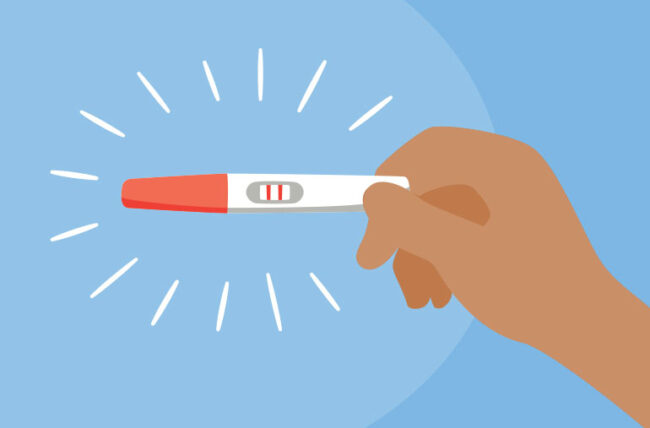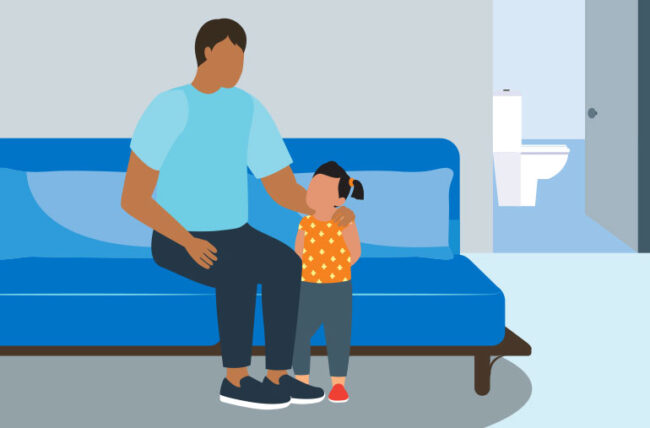It’s back! And in an unwelcome place. Many vaginal sufferers are familiar with the symptoms of itching: irritation and itching, sometimes with a white discharge.
You may assume that a yeast infection is the cause of these symptoms and start looking for antifungal medications. Maybe you wonder if your new underwear or detergent brand is the culprit. Vaginal itching is caused by a variety of factors, and each requires a different treatment. Antifungals are not effective in treating a condition that isn’t yeast-related. They can give the impression of treatment, while the problem actually continues to progress.
Salena Zanni, MD, , Ob/Gyn, explains the conditions that cause vaginal itching and how they can masquerade themselves as yeast infections. Learn how to distinguish between the two.
What causes vaginal itching?
There are eight possible causes for vaginal itching.
Yeast Infection
Let’s start with the most common cause: A vaginal yeast infection. The overgrowth of yeast is the cause. There are several signs to look out for. You may feel a burning sensation or itching in ,, and around your vagina. You may also notice a change to your vaginal discharge. If you notice that it has become thicker, this is a major sign.
If these symptoms return frequently (or do not respond to your usual treatment), you should visit your doctor to confirm whether or not you have a yeast infection. A yeast infection can be treated by using an antifungal medication. This usually works.
Sexually transmitted diseases
Some sexually transmissible infections (STIs) can cause irritation, an itchy discharge, and a mild odor.
Some STIs can cause vulvovaginal itchiness (a symptom that affects the vagina and vulva ). These include:
- Trichomoniasis.
- Herpes.
- Genital Warts.
You should see a doctor if you are unsure if the itching is due to an STI.
Skin reaction or allergy
The same can be said for your vagina. Certain fabrics or scents may not agree with your vagina.
The use of feminine hygiene products such as scented tampons or pads, which is an all-around bad idea by the way, can cause irritation and itching in the vaginal region.
Even a simple change in soap, such as bath soap or laundry soap, can trigger a vaginal reaction. It’s partly for this reason that it’s advised to avoid ” excessively cleaning your vagina” — to avoid adding any additional irritants.
Stop using the product immediately if you experience vaginal itching or burning after switching to menstrual products or hygiene products that contain fragrances. Consult a doctor for further advice if symptoms persist.
Jock itch
The jock itch, also known as tinia cruris, can cause itching in the vagina. This is similar to athlete’s feet, which can be caused by sharing underwear or towels. In this case, the itching occurs in the groin.
If your itching is localized more to your vagina than your thighs or crotch area, then it is probably and notthis.
If you notice any redness around these areas, and it doesn’t go away, then it is a good idea that you see your doctor to have it evaluated.
Lack of estrogen
As we age, our bodies begin to change. For women and those assigned female at birth a lack in estradiol may cause skin to thin. This can lead to irritation, itching, or discharge. Women who are going through menopause or breastfeeding may experience this. Vaginal Lubricants, or a small amount of estrogen may help.
Hemorrhoids
If you feel itchiness in or around the vagina, but also in the area near your anus, it could be hemorrhoids.
For hemorrhoids, you can find some relief by using home remedies like aloe vera, having good hygiene or using over-the-counter-ointments, but if you’re experiencing persistent itching and rectal bleeding, see a healthcare provider.
Vulva skin irritation or vulva-related skin irritation
Vaginal skin problems are also common. Some skin conditions can cause changes in the skin, including whitening and itching. Around your vagina, you may experience folliculitis or contact dermitis (inflammation in a hair follicle). A red, irritated, and sometimes painful rash could indicate a skin problem. Dr. Zanotti says that these conditions may need to be treated with a steroid cream such as Hydrocortisone.
Bacterial vaginosis
Bacterial vaginitis occurs when “good” and “bad”, or “good and bad” bacteria, are in conflict. If the bacteria in your vagina are too lopsided, they could cause an infection.
A distinct smell is associated with bacterial vaginosis. If you notice a “fishy” odor coming from your vagina along with irritation and itching, this could indicate a serious problem. A discharge that is white or gray may be present. Some people will see this go away by itself, but in other cases your doctor might recommend antibiotics.
Is this normal?
A vaginal itch every now and then is not abnormal. If it persists or worsens, it could be a sign that something is more serious. It’s crucial to note whether your vaginal itch started after a change of routine, such as using menstrual products, or if you noticed it suddenly.
If you:
- You notice blisters or ulcers in your vulva.
- You are experiencing pain or tenderness on your vagina.
- You notice redness around or in your vagina.
- You have difficulty urinating.
- You are experiencing pain or discomfort while having sex.
- You’re noticing unusual vaginal discharge.
How to stop or prevent itching in the lower abdomen
There is not always a single solution for itching. Speak to your doctor to determine the best treatment for you.
If you’re not getting relief with the usual methods, or if you’re unsure of the diagnosis, Dr. Zanotti advises that you should visit the office for a check-up.
Here are some tips to help you keep the itchiness at bay and reduce irritation:
- Do not use scented lotions or soaps.
- Do not: Use vaginal sprayed
- Change out wet clothes after swimming or exercising.
- Do not: Use vaginal sprays and douches.
- Wipe the front and back of the toilet (but not too hard!) After using the toilet, wipe it from front to back (but not too hard!
- Do: Change your underwear daily.
It’s not a reason to be embarrassed or panic if you experience vaginal itching. Listen to your body to determine what may be causing itching. Do not delay seeing your healthcare provider if you are experiencing persistent symptoms that interfere with daily life. They may be able to provide a quick fix.






















